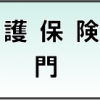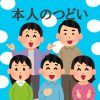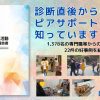ALZHEIMER’S ASSOCIATION JAPAN, MEWSLETTER
“Pole-Pole”
BULLETIN NO、300 July 2005
Summary Translation: HIROSAWA kayoko
1 General Meeting
On June 4th the General Meeting was opened in the commemoration of 25th anniversary of “ Family groups(AAJ)” in Kyoto City. 200 people, the most people in the past, joined. So the Social Welfare Hall was full of people.
After they offered the silent prayer to Reiko Mihara , who was the prsident of Shimane chapter and died last year, Mr. Takami, President gave a message.
In the message he referred to the followings:
(1)For the 20 years of the twentieth century, we have been informing the troubles of care, by which we have been seeking for the socialization of care. As a result the phrase “Though demented, their hearts are alive” was born.
(2)During the 5 years of the twenty-first century, the accumulation of 20 years bore fruit. Concretely, the birth of long-term care insurance, the world-wide spread of the feeling of Alzheimer sufferers, the success of international conference, the socialization of “Family groups” were realized by the Ministry of health, Labor and Welfare.
(3)Next step of the activities are the sufferer’s communication, the treatment of dementia on early onset, making the vision which will be available within 10 years, and changing the name of “Family groups(AAJ).” He stressed the most important thing is the encouragement among families.
25th Anniversary Reception
After the General Meeting 25th anniversary Reception took place at Kyoto Kokusai Hotel, inviting a lot of guests. At the beginning of the ceremony, after the congratulations of the Ministry of Health, Labor and Welfare, the letters of thanks were given to Mr. Yoshio Miyake, Mrs. Yumiko Saruyama, Mr. Sadaaki Tsujimura and Yoko Mizutani. In the end Dr. Miyake gave a short lecture on “Looking Back These 25 Years.”
The second part was a social gathering. It began with the toast by Mr. Sugiyama, Vice-president. The gathering went on grandly and comfortably thanks to Mr. Kiyokazu Aratsuna, Director. At this gathering, it was reported that the motto of this year would be “Peaceful Life with dementia, Let’s create together with you in our community.”
25th Anniversary Lecture
Everyone was moved by the Lecture of Isao Ozawa and the Speech by Kyoko
Matsumoto. The lecture and the speech were given on June 5th at a hall in Kyoto City. About 380 people listened to them.
The lecturer was Dr. Isao Ozawa who is the writer of the best seller titled “What is Alzheimer?” This book is introduced in our booklets in series. Dr. Ozawa talked about the following things, using the image with beautiful scenery.
(1)Modern medical treatment cannot cure the Kernel system such as forgetfulness and orientation obstacle. As to surrounding system such as delusion and wandering, it is surely curable. However, in order to do so, we have to know the sufferer’s personality, his way of living, the track of his life, if we care sincerely.
(2)After we have taken trouble to take a sufferer on a trip, if he does not remember anything, we will be distressed. In fact, however, happy feeling stays in his heart in some shape. He is certainly suffering dementia, but his heart is alive. Hoping his smile, let’s go on supporting him.
He talked about one hour. One of the listeners said, “It was a very moving lecture.”
Next Terumichi Matsumoto stood on the stage, and began to read his prepared manuscript. But soon he stopped and went down. Perhaps because he was tired after the long trip from Hiroshima and he was in the state of anxiety. The appearance of Mr. & Mrs. Matsumoto created the sensation. (The number of the people who had wanted to listen to the lecture and the speech became too many ten days before , and from then on the application was refused. )
Hurriedly his wife Kyoko began to talk about the ten years’ life with her husband. In her speech, she professed that both were workerholic and they didn’t have friends in the neighborhood and that she could neither talk to her parents about it. She appealed her troubles in tears. Some people on the floor also wept.
After this speech we had a symposium consisting of Dr. Ozawa, Kyoko Matsumoto, Mr.Takami, Mrs. Matsuyo Kamata, chief of editors, with Dr. Issho Matsumoto, coordinator.
Mr. Takami said that he was afraid this project might make Terumichi have a bitter experience. Mrs. Kamata who is also the care manager laid stress on the role of specialists. In the end Dr. Matsumoto, director, said that Alzheimer sufferers were beginning to give their opinions, according to the change of the society. He also said that we were still lacking in resources. All of them agreed “Family groups” were going to make an effort in order for sufferers to live safely, even if they have the disease.
In the questionnaire after the symposium there were such remarks as “I could understand Alzheimer by watching the appearance of Terumichi” or “I was very much moved ” and so on.
| A Part of the Manuscript Terumichi was Going to Speak
“I don’t want to trouble my surrounding people. However I cannot go on living without the others’ help. For, all the time, I cannot decide what to do next. This state began when I was 45 years old. In spite of this state, I changed after I met Dr. Katayama. He told me to make use of the service, the meeting of “Sitting in the Sun” and new medicine. By and by I came to go outside and talk with the people around me. I really hope to lessen the lord of my wife. |
2 Letters from our members
(1) Tell me what to do with a big voice and violence
(Mie pref. Mrs. M. 66 years old.).
It’s 9 years since my husband began to suffer Alzheimer by the sequela of subrachnoid bleeding. The short stay rejected him in 2001, and the day service stopped at the end of May of 2005. However, I am relieved because the symptom softened and the big voice and his violence decreased in those situation. When I think of the time when I become sick, I am anxious. Please tell me how people can distinguish the sufferers with a big voice and violence.
(2) I’m hesitating whether or I make use of service
(Chiba pref. Mr. U. 68 years old.).
I am a new member. Now I am caring my wife (61 years old) with the help of my wife’s mother (80 years old). It was last year that she was diagnosed as alzheimer. I have been prepared, for her symptom has suddenly progressed for these few years.
At present she is acknowledged needing care 2, but she has not yet got public care. We are thinking of day care service. We are not sure whether or we can make it as we expect.
(3)Sufferers had better confide their feelings.
(Kanagawa pref. Mrs. N. 80 years old.)
We are grateful that sufferers themselves confide their own feelings. If they do so, it is possible to spread the care which comes up to their feelings. In this way, we come nearer to our motto “Though we suffer Alzheimer, we can live safely in the society.”
(4)We have a very good group home in an old building.
(Tokyo. Mr. N. 44 years old.)
It is four yeas since my mother began to be taken care of in a group home. The home used to be a maternity home, so the building is very old. The oldness gives us a feeling of relief. The staffs are always bright, which makes the residents spend every day pleasantly.
As there were a small number of group homes before, if someone retired, a new resident came right away. Now, however, there are a lot of group homes; so even if someone has retired, it will be long before a new resident comes. It seems to me that the home cannot afford to manage.
(5)We have to wait five years to enter a facility.
(Shiga pref. Miss F. 40 years old.)
I am 40years old, spinsterhood and freeter. Five years have passed since we applied to a facility. I am regarded as a healthy carer, and our turn does never come round. After the residential guide line was made, a person who live alone, or a person who was treated with cruelty can enter a facility before my mother. I am indignant with the situation. I cannot understand why the person who are concerned seriously has to wait and wait.
3 “What is Alzheimer ?” was written by Dr. Hiroyuki Sugasaki, Director of Sugasaki Hospital.
This is the first time for me to write for this booklet. My name is Hiroyuki Sugasaki. I‘m going to write in three series. First of all, I would like to introduce myself.
I was born in Tokyo in 1962. When I was a child, I went to live in Kawasaki City in Kanagawa pref. I was brought up by an obstinate father and a loving mother. After the graduation of Nagasaki University Medical Department, I became a psychiatrist. For three years from April in 1994, I was working in Mitsugi General Hospital in Hiroshima. During the time, I came to know Dr. Isao Ozawa.
At present I am concerned with Sugasaki Clinic in Nagasaki pref., which is a proper clinic of Alzheimer without remuneration. I am also an adviser of Nagasaki branch of “Family groups(ADI)” which cares elderly Alzheimer sufferers. I have a Doctor Degree of Medicine and am a part-time professor of Nagasaki University Medical Department.
Recently I began the classes of Alzheimer care for care staffs. I give lectures 24 times a year. The main theme is “How to Approach the Heart of Alzheimer Sufferers.” I also began the lectures together with Dr. Masahiro Ota who is the representative of a meeting where people talk about Alzheimer.
I recognize Alzheimer as follows:
(1)The sufferers are living in the world of points of memory and thought. These points are scattered on one plane. So it is the most important thing to do for care givers to support them to connect these points.
(2)They have each peculiar world of mind, and there is a far distance from the common sense and understanding of ordinary persons. Because of the fact, the surrounding people should not treat them from the viewpoint of their own pattern of thought and action, but should understand the situation, always standing at the opponent’s position.
(3) I would like you not to negatively take the utterance and action as abnormal and troublesome. It is possible to take them positively, if you know the reason of the utterance and action.
(4)As they don’t recognize their own disease and difficulty completely, they have conflict between the surrounding people and themselves. It is one of the important things for them to soften the conflict.
(5) It can be said to be the high quality care that we receive and understand the troubles of every-day life and we give minimum necessary support casually when it is truly necessary.
(6)They have their own rights of decision, although there is a limit. So the supporters should learn the technique of communication ability, and help them to make appropriate decision.
4 . Please understand us.—Overseas series-1
(If you understand us correctly, our lives will be better.)—-by Jeanne Lea (an Alzheimer sufferer)
“If ordinary people and medical professionals understand us much better, our lives will be happier. It is my dilemma that it takes a long time for other people to understand my disease. All the more, I feel a great joy now; for I can write a book, make the supporting groups for the beginning sufferers of Alzheimer, and also speak in front of people.”
* The Trigger was the memorandum of an American Alzheimer sufferers.
(Adviser: Dr. Yoshio Miyake)
The Alzheimer sufferers of Canada, Australia, England, Singapore joined “International Alzheimer Association’s 20th International Conference in Kyoto in 2004” which took place in Kyoto in August last year. Their speeches in the workshop gave us a strong impact.
I afresh recognized that it is important to sincerely listen to the sufferers’ speeches and to care them affectionately.
If we look at the situation worldwide, it was only ten years ago that they themselves began to speak about their own feelings in front of people, deepening the understanding of people and asking for the support.
One of the triggers was a book written by an American named Diana McGoing. She gathered her experiences into a book titled “Living in the Labyrinth: A Personal Journey through the Maze of Alzheimer,” which was published in 1993. This became a best seller and made many people including specialists try to understand the feelings of Alzheimer sufferers. Those times too a lot of people didn’t believe that the sufferer herself had written the book. The Americans were interested in the medical treatment and the care of the sufferers and also in the question how to support the family carers. This book changed the view of the sufferers. We can say this book was a pioneer, for from then on the memorandums of sufferers themselves and the books written by their families began to be published in America and in Europe.
In Japan too her book was translated by the title of “The Memorandom of an Alzheimer: The Moment When I Am Broken” in the same year 1993, but it didn’t draw the people’s attention. So it went out of print.
It goes without saying that it was an Australian, Christine Boden(Bryden) translated the book titled “What Will I Become?—The World Seen from Alzheimer Sufferers?” It was published in Australia in1998 and in Japan in 2003. The Japanese people were interested as a book written by a sufferer herself.
The activity of the sufferers was not limited only to writing books in which they told about their own experiences. (continued)
5 A Message from Mr. Takami, President
Members, how are you getting along?
The 25th Lecture Meeting was a great success as “A Lecture Meeting to Know Alzheimer.” It had a high quality of contents, which the participants answers to the questionnaire showed.
During the meeting a sufferer Terumichi Matsumoto who went up to the stage followed by his wife Kyoko was going to make a speech himself. It was, however, regrettable that he could not go on. Before the opening, he had seen the stage and suddenly he looked uneasy. It seemed to me the reason was the darkness around there. He said, “I’m going home.” Kyoko, Dr. Katayama and the carer of Hiroshima got under extreme tension. They tried to take Terumich’s uneasiness away.
I could do nothing but cry to see the scene. I thought this plan was too hard for him. During Dr. Ozawa’s speech, he settled down and went up to the stage again with the help of Kyoko. He read a few words of his manuscript, but he had to stop, going down the stage once more.
Last autumn he spoke before the people at the International Conference in Hiroshima. So I was confident he could do the same thing this time too. He came back after a while, but could not speak in any way.
One of the important activities of our “Family groups(AAJ)” this year is to convey the sufferer’s feelings to the society. His repeated hesitation taught me that our aim cannot be got easily. To speak their feelings itself is a great battle for them.
In spite of the difficulty I would like them to speak their feelings. Before it becomes impossible, I will ask them to do so. For without this activity, “The Society Where the Sufferers Can Live Safely” will not come into being. I will go on not with tears in my eyes but with courage in my heart.
Take good care of yourself till the next month.


![ADI [認知症に関する意識調査]にご協力を! 481a44878304bfb962362a8840d87f08](https://www.alzheimer.or.jp/wp-content/uploads/2024/03/481a44878304bfb962362a8840d87f08-100x100.jpg)





